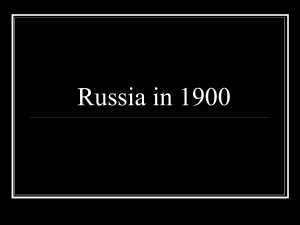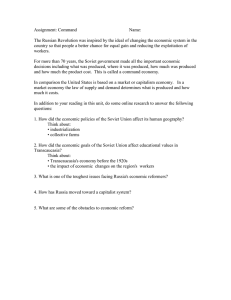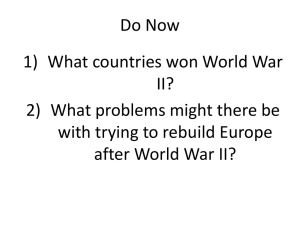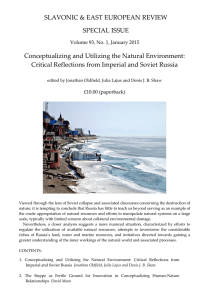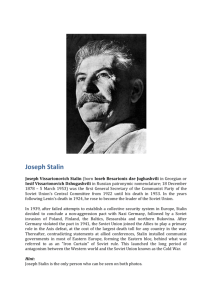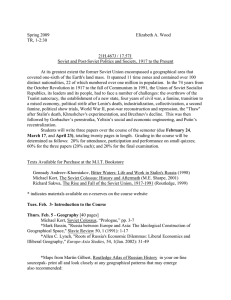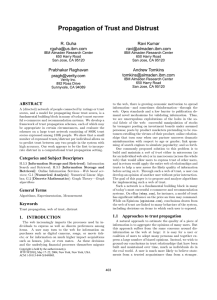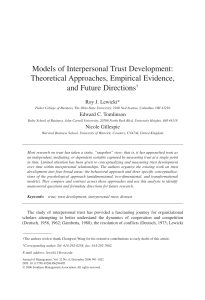SLAVONIC & EAST EUROPEAN REVIEW SPECIAL ISSUE
advertisement
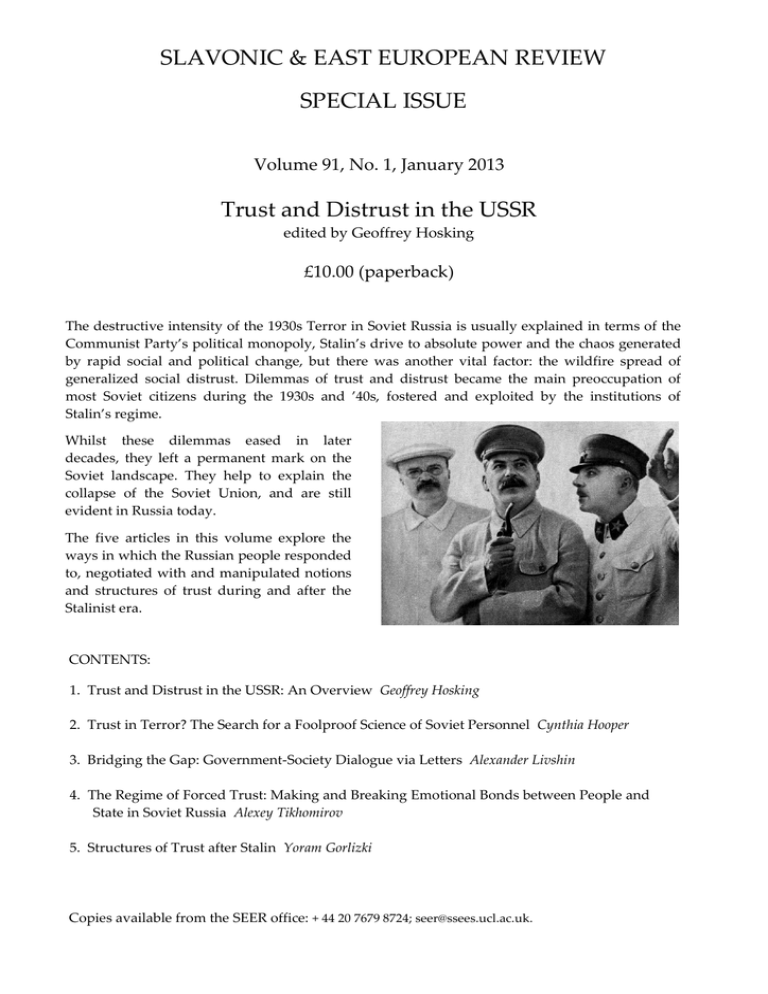
SLAVONIC & EAST EUROPEAN REVIEW SPECIAL ISSUE Volume 91, No. 1, January 2013 Trust and Distrust in the USSR edited by Geoffrey Hosking £10.00 (paperback) The destructive intensity of the 1930s Terror in Soviet Russia is usually explained in terms of the Communist Party’s political monopoly, Stalin’s drive to absolute power and the chaos generated by rapid social and political change, but there was another vital factor: the wildfire spread of generalized social distrust. Dilemmas of trust and distrust became the main preoccupation of most Soviet citizens during the 1930s and ’40s, fostered and exploited by the institutions of Stalin’s regime. Whilst these dilemmas eased in later decades, they left a permanent mark on the Soviet landscape. They help to explain the collapse of the Soviet Union, and are still evident in Russia today. The five articles in this volume explore the ways in which the Russian people responded to, negotiated with and manipulated notions and structures of trust during and after the Stalinist era. CONTENTS: 1. Trust and Distrust in the USSR: An Overview Geoffrey Hosking 2. Trust in Terror? The Search for a Foolproof Science of Soviet Personnel Cynthia Hooper 3. Bridging the Gap: Government-Society Dialogue via Letters Alexander Livshin 4. The Regime of Forced Trust: Making and Breaking Emotional Bonds between People and State in Soviet Russia Alexey Tikhomirov 5. Structures of Trust after Stalin Yoram Gorlizki Copies available from the SEER office: + 44 20 7679 8724; seer@ssees.ucl.ac.uk.

